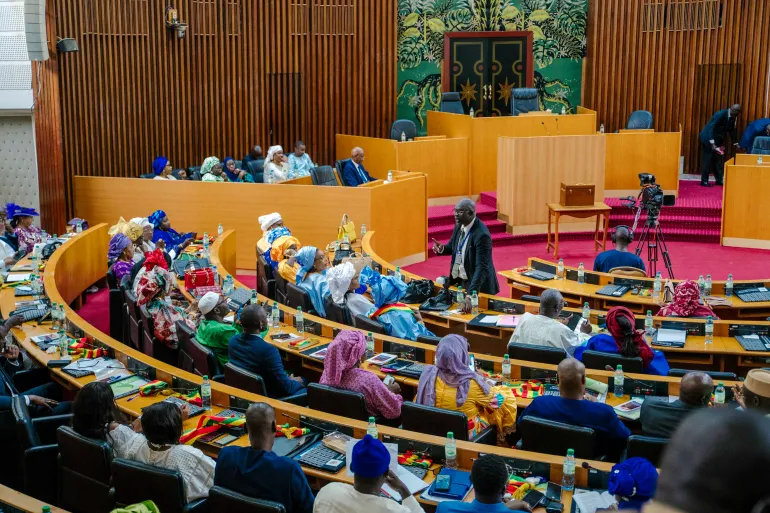Senegal will hold snap parliamentary elections in mid-November following President Bassirou Diomaye Faye’s decision to dissolve the opposition-dominated National Assembly. The move is seen as essential for Faye to push forward his policy agenda.
Faye, who won the presidency on March 24 with a platform promising radical change, has faced challenges from a parliament controlled by the coalition of former president Macky Sall. Along with Prime Minister Ousmane Sonko, Faye campaigned on promises of social justice, sovereignty, and pan-Africanism, raising hopes in a country grappling with high unemployment and a rising cost of living.
The upcoming elections are set for November 17, and Faye’s supporters hope the results will give his administration the parliamentary majority it needs to govern effectively. Many Senegalese voters agree that the current assembly has been an obstacle to the new government’s ability to function.

Political analysts believe Faye’s camp has a strong chance of winning the parliamentary elections. The political landscape in Senegal has been tense since Faye’s victory, with the country’s youth, who make up a large part of the population, placing high expectations on his government. Despite some early efforts to lower food prices and initiate reforms, many major projects have been stalled due to the legislative deadlock.
Faye criticized the National Assembly for promoting what he called a “cult of deadlock,” impeding the implementation of his campaign promises. With the dissolution of parliament, the government will now seek a fresh mandate to advance its agenda.
The snap election raises logistical challenges, including debates over whether to revise electoral rolls and the candidate sponsorship system. Critics also worry about the financial implications, with concerns that the 2024 and 2025 budgets may not be passed in time.
Faye’s political opponents accuse him of calling elections to avoid a censure motion against Prime Minister Sonko’s government. However, supporters argue that the new elections will finally allow the government to be judged on its achievements without the excuse of an uncooperative parliament.


